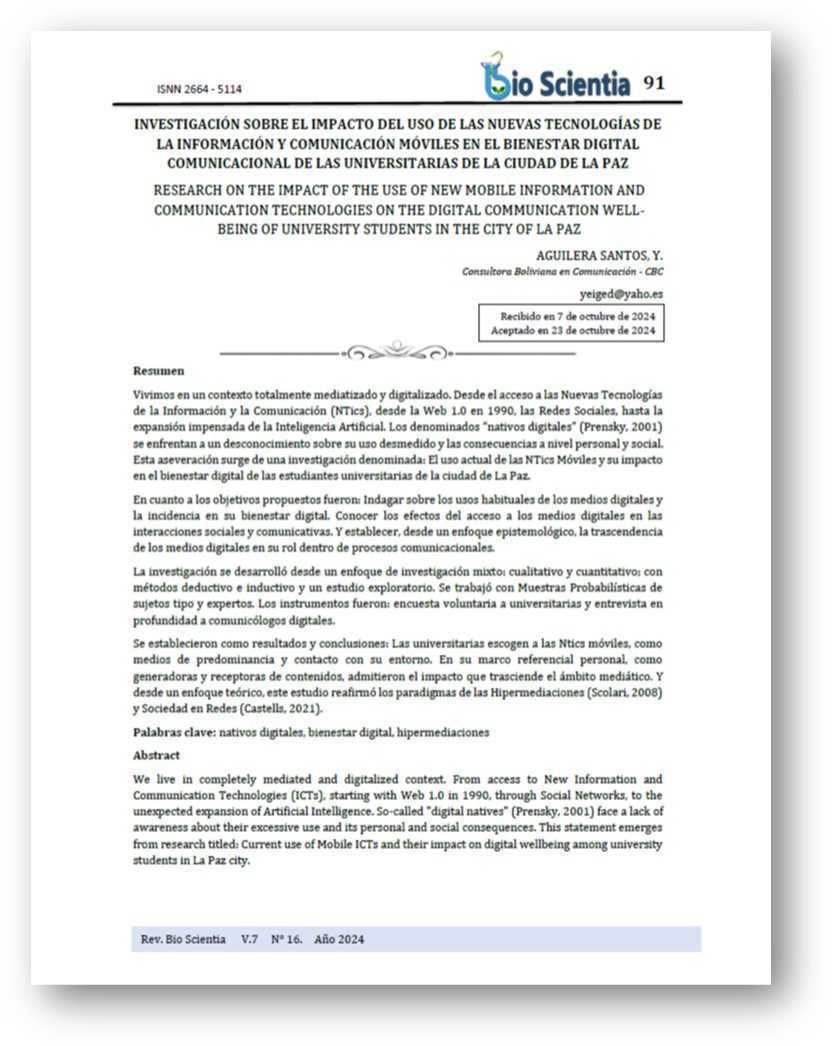RESEARCH ON THE IMPACT OF THE USE OF NEW MOBILE INFORMATION AND COMMUNICATION TECHNOLOGIES ON THE DIGITAL COMMUNICATION WELL-BEING OF UNIVERSITY STUDENTS IN THE CITY OF LA PAZ
Keywords:
hypermediations, digital wellbeing, digital nativesAbstract
We live in completely mediated and digitalized context. From access to New Information and Communication Technologies (ICTs), starting with Web 1.0 in 1990, through Social Networks, to the unexpected expansion of Artificial Intelligence. So-called "digital natives" (Prensky, 2001) face a lack of awareness about their excessive use and its personal and social consequences. This statement emerges from research titled: Current use of Mobile ICTs and their impact on digital wellbeing among university students in La Paz city.
The proposed objectives were: To investigate habitual uses of digital media and their impact on digital wellbeing. To understand effects of digital media access on social and communicative interactions. And to establish, from an epistemological approach, the significance of digital media in their role within communication processes.
The research was conducted using a mixed-methods approach: qualitative and quantitative; with deductive and inductive methods and exploratory study. We worked with probabilistic samples of typical subjects and experts. The instruments were: voluntary survey of university students and in-depth interviews with digital communication specialists.
Key results and conclusions established: University students choose mobile ICTs as predominant means for connecting with their environment. In their personal reference framework, as content creators and receivers, they acknowledged impacts transcending the media sphere. From theoretical perspective, this study reaffirmed paradigms of Hypermediations (Scolari, 2008) and Network Society (Castells, 2021).



